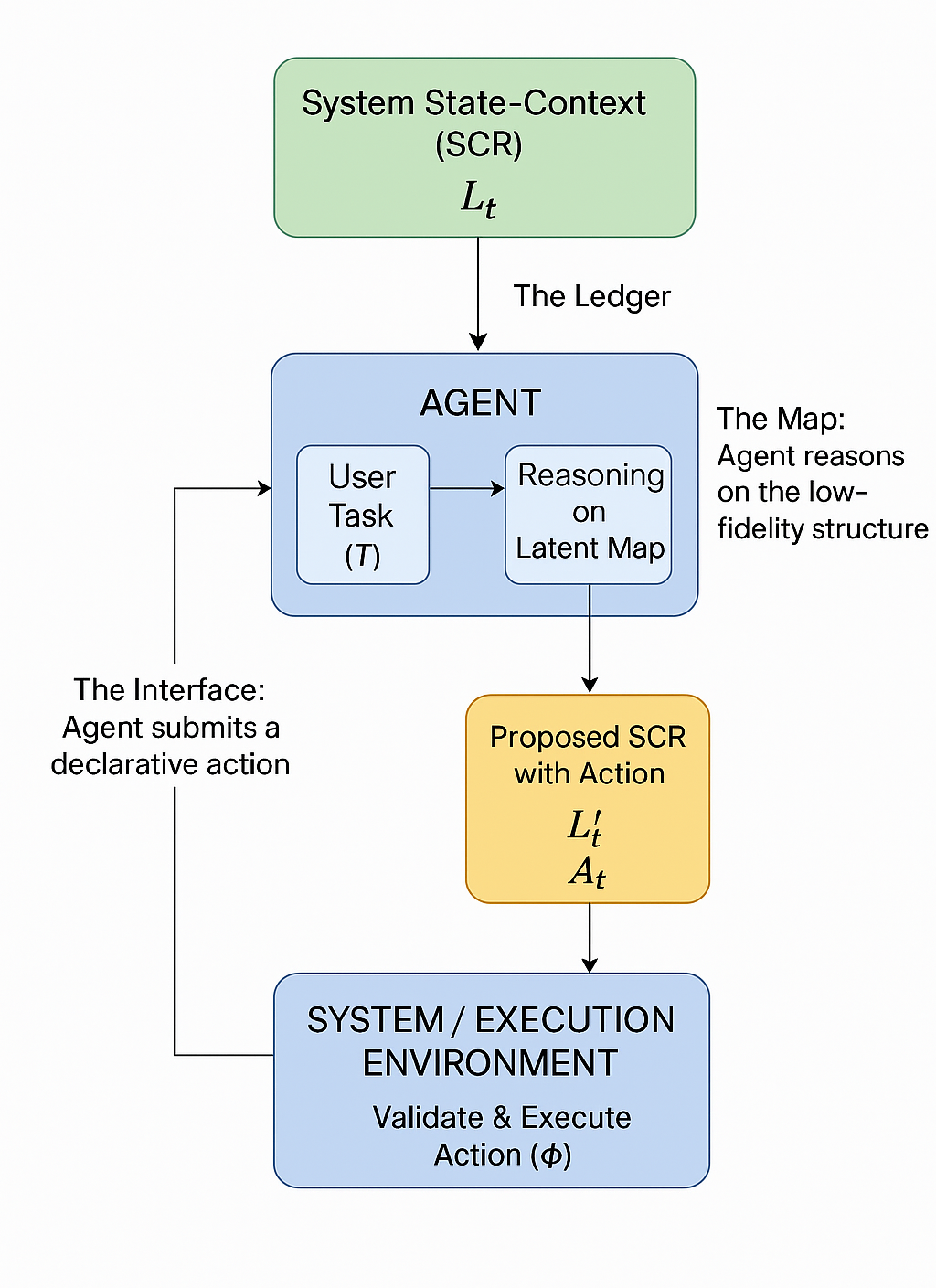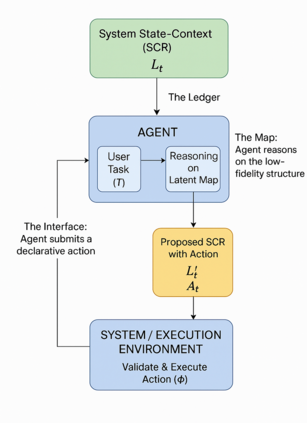Large Language Models (LLMs) are increasingly deployed as autonomous agents, yet their practical utility is fundamentally constrained by a limited context window and state desynchronization resulting from the LLMs' stateless nature and inefficient context management. These limitations lead to unreliable output, unpredictable behavior, and inefficient resource usage, particularly when interacting with large, structured, and sensitive knowledge systems such as codebases and documents. To address these challenges, we introduce the Gatekeeper Protocol, a novel, domain-agnostic framework that governs agent-system interactions. Our protocol mandates that the agent first operate and reason on a minimalist, low-fidelity "latent state" representation of the system to strategically request high-fidelity context on demand. All interactions are mediated through a unified JSON format that serves as a declarative, state-synchronized protocol, ensuring the agent's model of the system remains verifiably grounded in the system's reality. We demonstrate the efficacy of this protocol with Sage, a reference implementation of the Gatekeeper Protocol for software development. Our results show that this approach significantly increases agent reliability, improves computational efficiency by minimizing token consumption, and enables scalable interaction with complex systems, creating a foundational methodology for building more robust, predictable, and grounded AI agents for any structured knowledge domain.
翻译:暂无翻译






